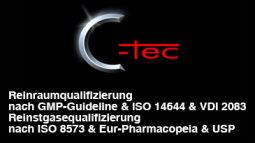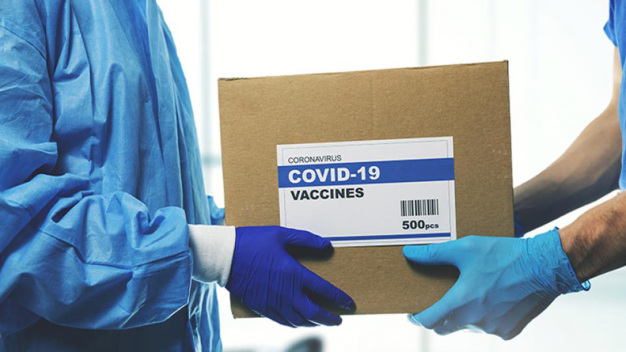- Furnishing & equipment
Paul Daniel
New COVID-19 vaccines benefit from tried-and-true temperature monitoring
The current COVID-19 pandemic has brought acute attention to the development, storage, and distribution of vaccines. Proper storage and distribution of the vaccines will be key components to conquering the virus and saving lives because, as with any temperature-sensitive pharmaceutical or biological, storage at incorrect temperatures can decrease the quality, safety, and effectiveness of the product.
Links in the cold chain
Regulatory requirements for distribution and storage of a temperature-sensitive drug or vaccine has three basic parts. First, stability testing is required to determine the appropriate storage temperatures for preserving product efficacy. Typically, stability testing is done at common temperatures, including: ambient (15 to 25°C), refrigerated (2 to 8°C), and frozen (≤-20°C). These temperatures tend to match the conditions drugs will encounter in the supply chain. Stability testing is used to define the expiration dates for products.
Second, the product is stored in appropriate temperatures using equipment that has been proven through testing to be capable of maintaining the required temperatures. My first job in biotechnology 24 years ago was qualifying freezers through validation. If the freezer passed the validation, it was considered qualified to store temperature controlled medicines.
The third step required by regulation is monitoring the storage environments to detect emergencies, verify ongoing performance, and prove compliance for regulatory agencies. This is where Vaisala’s viewLinc Continuous Monitoring System is often used, as an automated and efficient solution to the challenge of monitoring these various temperature controlled environments. These three steps – stability testing, qualification, and monitoring – are the foundation for protecting temperature-sensitive drugs and vaccines during manufacturing and storage.
New vaccines for COVID-19
The majority of vaccines must be stored within a few degrees (plus or minus) of their ideal temperature. Classic vaccines made with weakened or inactive viruses typically require storage in refrigerators between 2 and 8°C. This is the case with the AstraZeneca and Johnson & Johnson vaccines, which use a DNA strand packaged in a harmless adenovirus. However, the first two vaccines developed for COVID-19 utilize a new kind of vaccine technology using mRNA (messenger ribonucleic acid). Although mRNA has been studied since 1961, with both “Nature” and “The Journal of Molecular Biology” publishing on it in that year, the COVID-19 vaccines from Pfizer and Moderna are the first mRNA based vaccines approved for widespread use.
In 2018, "Nature” published "mRNA vaccines — a new era in vaccinology" sharing research that indicated that when mRNA is injected into an animal, the cells of that animal would produce a desired protein that would initiate an immune response. Initially, mRNA vaccines were known to degrade easily and were often destroyed by the immune system. But in 2005, researchers proposed ways to stabilize mRNA molecules using a lipid envelope. Research into mRNA vaccines progressed slowly until the COVID-19 pandemic, and the appearance of this novel coronavirus advanced research efforts as never before to create a fast, effective solution.
Traditional vaccines inject an antigen, usually an inactive or weakened version of a virus. An mRNA vaccine injects mRNA instructions to build part of the antigen, and the cells in the vaccinated person create the necessary antigen proteins. Once the antigen proteins are in the body, the immune system can produce antibodies, which are the backbone of our immune response to a viral infection. This is how a vaccine provides protection from an actual virus.
Vaccine storage solutions
Despite the work that has been done to stabilize mRNA vaccines by storing them in small lipid envelopes, the mRNA molecules remain relatively delicate. This is why the COVID-19 mRNA vaccines must be stored at much colder temperatures than traditional vaccines. The Moderna vaccine is to be stored between -15°C to -25°C, while the Pfizer vaccine requires storage at an ultralow -60°C to -80°C. The more extreme the temperature, the more difficult it is to maintain, and the more critical it is to monitor the environment with sensitivity and accuracy.
Distribution of vaccines is complex, even for standard and relatively stable vaccines. The path from manufacturer to clinic for a temperature-sensitive product is known as the cold chain. This cold chain has static storage applications, where the product is held in storage, such as a warehouse. There are dynamic storage applications in cold chains, where the product is in transit, such as a temperature-controlled truck or other shipping container. Both types of storage, static and dynamic, have specific monitoring challenges.
The Vaisala viewLinc Continuous Monitoring System is used worldwide in static cold chain applications, such as warehouses, loading docks, and pharmacies. The system monitors environmental conditions, collecting and protecting inalterable data on the time, temperature, and location of vaccines.
Critical cold chains require reliable monitoring
Now that COVID-19 vaccines are being shipped from manufacturers to be administered to the public, accurately monitoring both static and dynamic links in global cold chain applications is receiving more scrutiny than ever before. Vaisala has been providing measurement solutions for over 80 years. Trusted for accurate and stable measurements, our sensors are currently used in the Mars Exploration Program and by the world’s top pharmaceutical and biotechnology manufacturers. Safely distributing the new vaccines is one of the most complex logistical challenges we have ever faced on this planet and Vaisala is proud to support the distribution of the COVID-19 vaccines by helping manufacturers, distributors, and pharmacies monitor their storage and production environments.
![]()
Vaisala GmbH
Rheinwerkallee 2
53227 Bonn
Germany
Phone: +49 228 249710
Fax: +49 228 2497111
email: vertrieb@vaisala.com
Internet: http://www.vaisala.de









